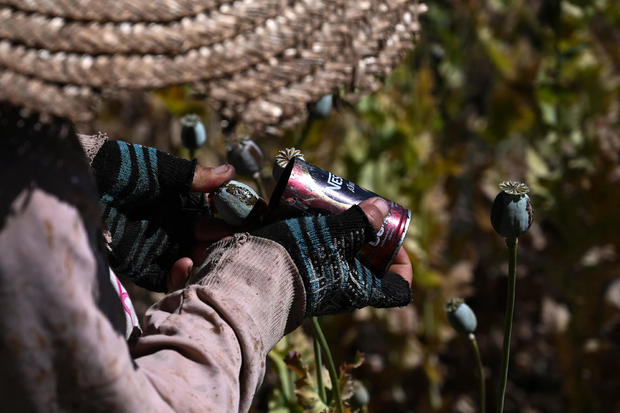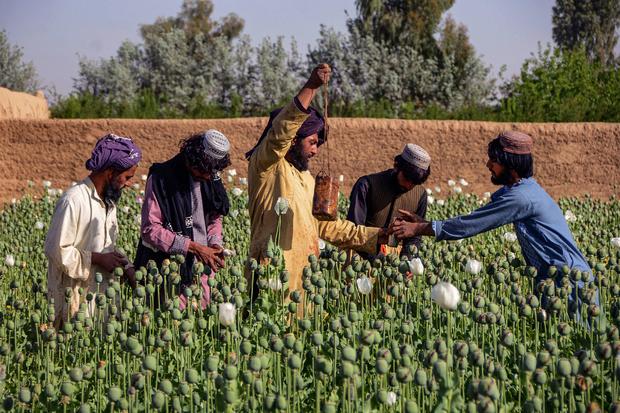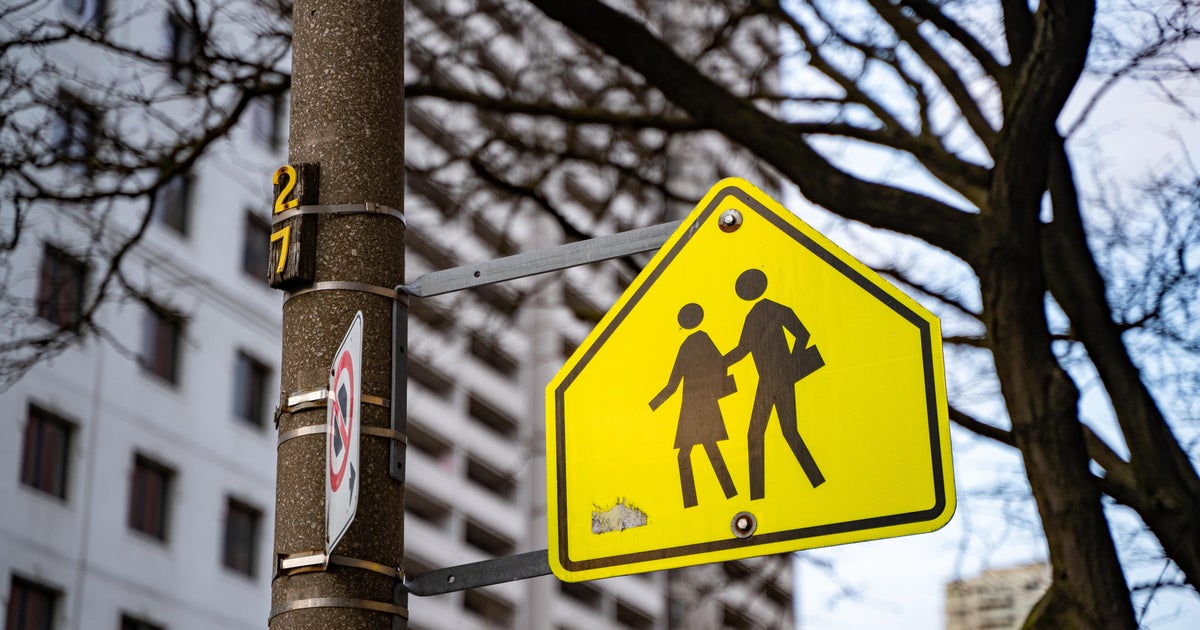Myanmar overtakes Afghanistan as the world's biggest opium producer, U.N. says
Bangkok, Thailand — Myanmar became the world's biggest producer of opium in 2023, overtaking Afghanistan after the Taliban government's crackdown on the trade, according to a United Nations report released on Tuesday.
Myanmar produced an estimated 1,190 tons of opium — essential for producing heroin — this year, according to the latest report by the United Nations Office for Drugs and Crime (UNODC).
The figures come after opium production in Afghanistan slumped an estimated 95 percent to around 364 tons following the Taliban government's ban on poppy cultivation in April last year, according to UNODC.
What's fueling Myanmar's opium poppy boom?
The "Golden Triangle" border region between Myanmar, Laos and Thailand has long been a hotbed of illegal drug production and trafficking, particularly of methamphetamine and opium.
The total estimated value of Myanmar's "opiate economy" rose to between $1 billion and $2.4 billion — the equivalent of 1.7 to 4.1 percent of the country's 2022 GDP, UNODC said.
An estimated 871 tons of opium were produced in Myanmar last year, it said.
Myanmar's legal economy has been gutted by conflict and instability since the military seized power in 2021, driving many farmers to grow poppy.
Poor access to markets and state infrastructure, as well as rampant inflation, "appears to have played a significant role in farmers' decisions in late 2022 to cultivate more poppy," the report said.
Estimated opium production for 2022-23 was at its highest level for more than 20 years, UNODC said.
It also said poppy cultivation in Myanmar was becoming more sophisticated, with increased investment and better practices — including improved irrigation and possible use of fertilizers — pushing up crop yields.
AFP was unable to reach a Myanmar junta spokesman for comment.
A senior police officer working in the country's anti-drugs unit said conflict was hampering efforts by law enforcement to locate and destroy poppy fields.
"Without security, we cannot do much although we want to," the officer said, speaking on condition of anonymity.
The main cultivating area in Myanmar is Shan state, the northern part of which has been convulsed by fighting in recent weeks after an alliance of ethnic minority armed groups launched an offensive against the junta and its allies.
Shan accounted for about 88 percent of the 102,054 acres of opium poppy areas nationwide, the U.N. report said. Shan state occupies almost a quarter of Myanmar's land mass and is dotted with ravines and jungle-clad hills.
A giddying array of ethnic armed organizations that can call on tens of thousands of well-armed fighters control swaths of the state, which the U.N. says is also Southeast Asia's primary source of methamphetamine.
Some administer autonomous enclaves granted to them by previous juntas, which analysts say are home to casinos, brothels and weapons factories.
The U.N. said cultivation had also increased in northern Kachin state and in Chin state on the border with India.
Analysts say the military, which ousted an elected government and seized power in 2021, is not serious about ending the multi-billion dollar trade.
In a rare admission earlier this year, the head of Myanmar's Central Committee on Drug Abuse Control said its efforts to crush the trade were having no impact.
Taliban claims opium cultivation "eradicated"
Afghanistan, the world's biggest producer for some years, has seen cultivation collapse after the Taliban authorities vowed to end illegal drug production. In its 2022 report, the UNODC said poppy cultivation had continued to increase in Afghanistan during the first year of the Taliban's return to power. That trend was dramatically reversed during 2023, however, according to the UNODC data.
Poppy crops accounted for almost a third of the country's total agricultural production by value in 2022, but the area used for poppy shrank from 575,756 acres in late 2022 to 26,687 in 2023.
Afghan Taliban spokesman Zabihullah Mujahid told AFP that poppy cultivation had been "eradicated," but acknowledged the plight of growers forced to switch to less lucrative crops.
"They have stopped growing it now but, in the future, it cannot be guaranteed because people are facing many problems," he said.





